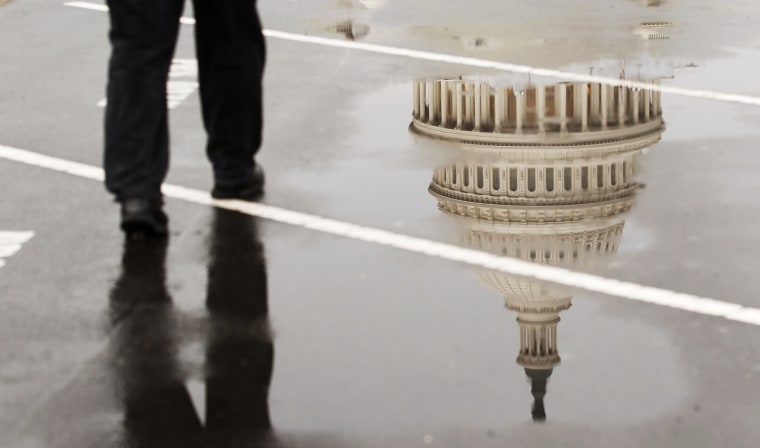President Obama did something yesterday that was kind of amusing, in a macabre sort of way. Midday, the White House announced the president had nominated three qualified individuals to serve as federal district court judges.
"I am honored to put forward these highly qualified candidates for the federal bench," Obama said in a statement, as if the federal government still operated normally. "They will be distinguished public servants and valuable additions to the United States District Court."
Except, he knows, as we know, that they almost certainly won't be valuable additions to the District Court because the Republican-led Senate prefers not to confirm this president's judicial nominees.
In fairness, it's worth noting that the Senate actually confirmed a district court nominee this week, on a 92-to-0 vote. It was the first floor vote for any judicial nominee in two months. And after the vote, a few Capitol Hill observers wondered aloud whether this was the last confirmation vote we'll see before 2017.
The Huffington Post checked with Senate Majority Leader Mitch McConnell's (R-Ky.) office, which "wouldn't say when, or if, the Senate will vote to confirm the next judicial nominees on the list." And what a list it is.
The delays are part of a broader GOP strategy to punt judicial confirmations to next year, when a Republican might be in the White House and nominate people they like better. [This week's confirmed jurist] is only the 17th judge who has been confirmed since the GOP became the Senate majority in January 2015. By contrast, in the final two years of President George W. Bush's term, Democrats controlled the Senate and had confirmed 68 judicial nominees by this point. Court vacancies have been ticking up in the meantime. They're at 78 now, and 34 of them are emergencies. When court seats go unfilled, people's cases can get delayed for years and judges struggle with burnout.
A separate Huffington Post piece added that, in some cases, Republican senators want judicial confirmation votes for uncontroversial nominees who'd serve in their home states, but "their own party leaders" are ignoring the pleas.
The Senate Republican majority's handling of Merrick Garland's Supreme Court nomination is a scandal of sorts in its own right -- the GOP blockade has no precedent in the American tradition -- but that's really just the highest-profile example of a more systemic abuse.
Carl Tobias, a law professor at the University of Richmond School of Law, told CNN this week that the Republican refusal to confirm lower court judges is "plumbing new depths in the confirmation wars, which needs to end for the good of the courts and good of the nation."
The scholar added, "After all, the judiciary is a coequal branch and the GOP has a constitutional duty to afford advice and consent and judicial resources, so the courts can discharge their constitutional duty to deliver justice."
At least at this point, the Republican majority has heard these complaints, but it just doesn't care.
